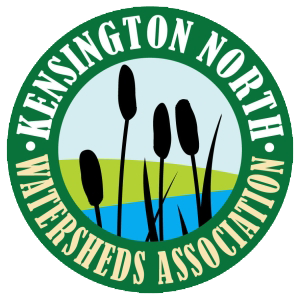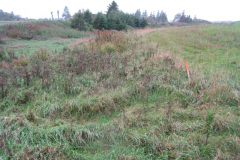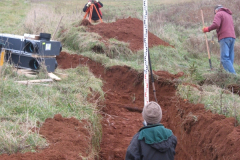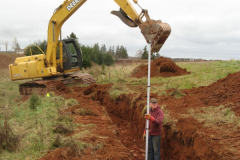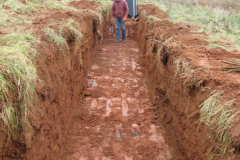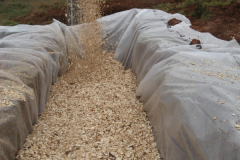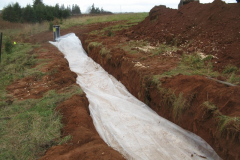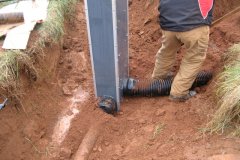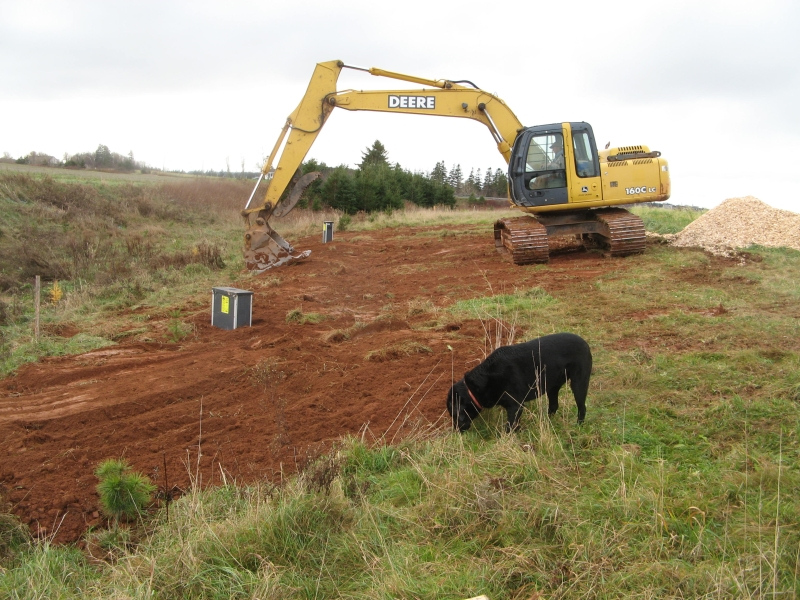KNWSA has recently constructed a bio-reactor, or bio-filter, to capture nitrates from tile drainage in a small tributary to Darnley Basin. We have previously planted trees in this same small riparian zone on the property of Hickey Farms in Darnley. The location was thought to be a good site to demonstrate this new bio-filter technology.
The bio-reactor is essentially a 40 ft. long trench, 4 ft. wide and 4 ft. deep, lined with polyethylene plastic and filled with wood chips. Water from the field tile enters and exits the pit via special control structures that regulate the water level in the bio-reactor. The wood chips, nourished by nitrates in the water, are host to a microbial population that use up 50 to 80% of the nitrates. The water leaves the bio-reactor and enters the riparian zone in a cleaner state.
The bio-reactor option has limited application in our watersheds, but every small reduction in nitrates will be necessary in order for us to achieve reduced nitrate levels in our ground water and surface water. This new technology may lead into other biological methods to reduce nitrates.
Nitrates have been identified as major contributors towards the growth of excessive blooms of sea lettuce in our estuaries (where the salt and fresh water meet) which in turn leads to harmful anoxic events. Sources of nitrates include septic systems, manure, chemical fertilizer, industry, and residential waste management systems. Kensington North has a Nitrates Stakeholder Committee, made up of residents, farmers, and developers, that are thoroughly reviewing all things concerning nitrates in the upper Southwest River watersheds. The committee is working on a community based plan to reduce nitrates in ground water and surface water. There will be more news from this committee later this winter.
